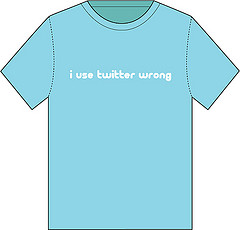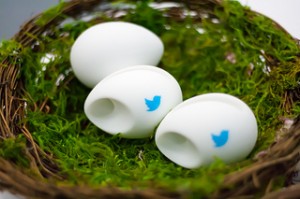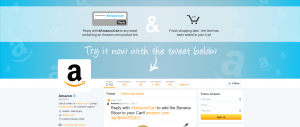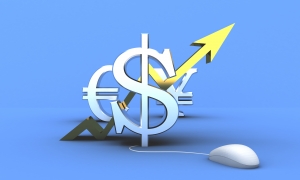 A new study by Pennsylvania State University reveals that more brand mentions on Twitter are made by people seeking information about those brands than to praise or criticize them (as reported by eMarketer).
A new study by Pennsylvania State University reveals that more brand mentions on Twitter are made by people seeking information about those brands than to praise or criticize them (as reported by eMarketer).
By studying almost 150,000 tweets that included brand mentions, it was found that nearly 50% of them were “comments”, which the study defined as tweets that mentioned a brand but were not about that brand. 18.1% of tweets that mentioned brands were posted by people who were providing information to others and 11.1% were made by people who were looking for information about a specific brand. Nearly one-quarter (22.3%) of tweets that mentioned brands included an opinion about that brand, and most of those were positive comments about the brand.
Here is the breakdown of tweets that included opinions about brands:
- 52.4% were positive
- 14.2% were somewhat indifferent
- 33.5% were negative
While it’s great to learn that more opinionated brand mentions on Twitter are positive than negative, this information is probably not enough to convince every brand manager and executive (the bigger obstacle) to get on Twitter. The fear is of that one-third that has negative opinions about the brand and voices them on the social Web. However, by responding honestly to criticism and flooding the Internet with great content, the goal of brand managers is not to control the conversation but to correct inaccuracies and nudge the conversation in the “right” direction.
Giving up control of the brand conversation is frightening but it’s absolutely critical to social media success. The key is monitoring the conversation and gently guiding it without controlling it. That’s the balance that brand managers need to find, and that’s where the successful social media brands are separated from the rest of the pack.
Currently, some of the most successful brands on Twitter include @ComcastCares and @DellOutlet. Both use Twitter very differently with @ComcastCares providing mostly customer service and informational tweets while @DellOutlet provides primarily discount and promotional announcements. Both are successful because they provide useful and meaningful information. There isn’t a single recipe for success for brands on Twitter yet. In fact, there are different ways to attain some success, but what’s the best way to truly drive sales? In comparing @ComcastCares and @DellOutlet, the answer would be @DellOutlet who drove millions of dollars of sales through its Twitter updates over the course of just a few years. But at the same time, @ComcastCares has been very successful in meeting consumer needs for the brand.
The first step is determining what your brand goals are for Twitter — brand building, sales, customer service? And then consistently and continually provide meaningful and useful information. Monitor what is being said about your brand across the Twitter community and rein in inaccuracies and nudge the conversation in the direction that meets your brand’s strategic goals. Twitter is a phenomenal tool for promoting brands, but it should be part of a long-term, relationship-building strategy enhanced by short-term tactics.
Image: Flickr
Susan Gunelius is the author of 10 marketing, social media, branding, copywriting, and technology books, and she is President & CEO of KeySplash Creative, Inc., a marketing communications company. She also owns Women on Business, an award-wining blog for business women. She is a featured columnist for Entrepreneur.com and Forbes.com, and her marketing-related articles have appeared on websites such as MSNBC.com, BusinessWeek.com, TodayShow.com, and more.
She has over 20 years of experience in the marketing field having spent the first decade of her career directing marketing programs for some of the largest companies in the world, including divisions of AT&T and HSBC. Today, her clients include large and small companies around the world and household brands like Citigroup, Cox Communications, Intuit, and more. Susan is frequently interviewed about marketing and branding by television, radio, print, and online media organizations, and she speaks about these topics at events around the world. You can connect with her on Twitter, Facebook, LinkedIn, or Google+.



Susan, Great work. You are right, Brand managers are afraid of the negative publicity. Thats why Shrek’s staff was told to get off Twitter today. One bad tweet on your off day and you can be answering more questions than what its worth. But those are extreme cases. As a corporate brand manager I would be foolish not to give twitter a second look. I’ve just compiled a list of branding strategies on twitter along with a wizard. I think you would like find it useful http://www.targetinfolabs.com/social-media/whats-your-twitter-channel-strategy-for-branding/